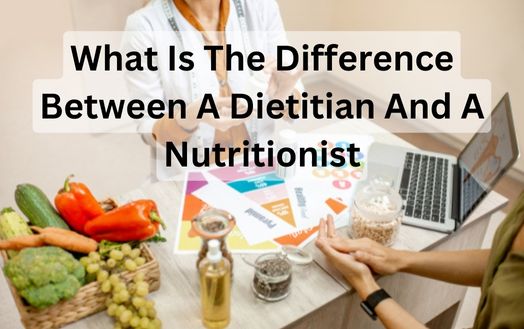All Categories
Featured
Table of Contents
-1
In the United States and numerous various other countries, a dietitian is a board-certified food and nourishment professional. They are highly educated in the field of nutrition and dietetics the science of food, nourishment, and their effect on human health. Via considerable training, dietitians acquire the competence to offer evidence-based clinical nutrition therapy and dietary counseling tailored to meet a person's needs.
-1To clear up, the credentials of RD and RDN are compatible. Nevertheless, RDN is an extra current designation. Dietitians can pick which credential they would certainly rather use. To earn these qualifications dietitians-to-be should first gain a bachelor's degree or equivalent credits from an approved program at a college or university. Commonly, this calls for an undergraduate scientific research degree, including programs in biology, microbiology, natural and not natural chemistry, biochemistry, composition, and physiology, along with more specific nourishment coursework.
Dietitian For Diabetes Type 2
-1This enables them to evaluate acute requirements, prioritizing deadly conditions. Inpatient and outpatient dietitians likewise provide nutrition education to people with specialized requirements, such as those newly out of surgical treatment, in cancer cells therapy, or detected with persistent diseases like diabetes mellitus or kidney condition. In the outpatient setup, they give extra in-depth nutritional counseling functioning towards a nutrition-oriented objective.
-1They can additionally promote for public laws with a concentrate on nutrition, food, and health concerns. Research study dietitians typically operate in research health centers, companies, or universities. They operate within a research team headed by a key detective and execute nutrition-focused interventions. As soon as dietitians have actually made their credentials and are operating in the area, they can take place to specialize in a specific subcategory, such as pediatrics or sporting activities dietetics.
-1They might in addition instruct in a scholastic or research establishment or discuss nutrition-related topics. Others may work as health and wellness and nutrition experts in media or as public speakers. Dietitians are certified to manage nourishment treatment across a span of acute and persistent problems. The kind of conditions they deal with depends most on the setup of their method.
Holistic Nutritionist
-1In several states, such as Alaska, Florida, Illinois, Maryland, Massachusetts, and Pennsylvania, RDs and CNSs are provided the very same state certificate, generally called a Qualified Dietitian Nutritional Expert (LDN) certificate. In states that do not manage using this term, any individual with a rate of interest in diet regimen or nourishment might call themselves a nutritionist.
-1However, due to the fact that uncredentialed nutritional experts normally do not have the know-how and training for medical nutrition treatment and nourishment therapy, following their advice could be taken into consideration damaging (). Before consulting a nutritionist, you may wish to inspect whether your state regulates that may utilize this title. In the U.S. states that don't regulate the term, no degrees or qualifications are required to be a nutritionist.

-1
In states that do mandate licensure, the CNS or RD credential may called for. Those with CNS qualifications are health and wellness specialists like nurses or doctors with advanced health levels who have actually looked for out added coursework, finished supervised practice hours, and passed an examination managed by the Board for Certification of Nourishment Specialists.
-1While a few of these approaches may have robust scientific backing, others may not. Offering nutrition recommendations without the correct knowledge and training can be damaging, particularly when counseling those with wellness problems. If you are considering consulting a nutritionist, you might desire to ask if they are a CNS or have state licensure or certification, or an additional credential.
Functional Dietitian (Lesmurdie )
-1Numerous states particularly regulate this term. In addition, nutritional experts may pursue a sophisticated CNS certification.
-1It can be challenging to help people make genuine, lasting modifications in their lives. Both dietitians and nutritional experts supply a variety of nutrition-based services to clients.
-1They need to have completed some degree of education in their field. They are also required to have completed approximately a year of monitored work, functioning within an assisted program at a medical care facility, catering service, or neighborhood body. Dietitians have much higher assumptions put on their capabilities and level of expertise.
-1This implies that there is no body that oversees their credentials and no specifically rigorous guidelines that nutritionists demand to comply with in order to be able to exercise. Dietitians, on the other hand, are registered with nationally recognised bodies, such as the Dietitians Organization of Australia. They need to follow the National Proficiency Specifications for Dietitians.
Accredited Sports Dietitian – Lesmurdie 6076

-1
Nonetheless, you can exercise as a nutritionist without the very same level of accreditation as a dietitian. Nutritional expert courses can differ in size and quality, with some as short as 6 weeks and covering much less content than a dietetics training course. Depending on your education and learning provider, you can obtain a considerable quantity of knowledge via studying an easy nourishment training course; however it is necessary to check out the course content before commencing.
-1This can include going to industry seminars or checking out market publications. Nutritional experts, on the various other hand, generally earn their qualifications in order to supplement other qualifications and give far better suggestions to their clients. Nutritional experts can obtain employment in a large range of fields, consisting of public health and wellness suggestions, advice for individuals, and collaborating with private organisations.
-1Nutritionists can work with sporting organisations, health clubs, institutions and suggest media outlets on standard terms and proper use of terms. Dietitians can work in most of the very same roles as nutritional experts.
Weight Management Nutritionist
-1Dietitians frequently work with more clinically sensitive customers. These can consist of those with diabetic issues, allergic reactions, excessive weight, cancer and intestinal illness. As a result of the high degree of knowledge needed to supply services to these people, only recognized dietitians are permitted to provide treatment. Several of the greater level roles with healthcare establishments can be extremely rewarding, and pay fairly well.
-1In Australia there is a distinction in between a dietitian and various other dietary health carriers consisting of nutritional experts. All dietitians are nutritionists, but nutritional experts without a dietetics certification can't call themselves a dietitian. While there are resemblances in between a dietitian and nutritional expert there are differences in credentials and regulation. The dietetic profession is regulated and satisfies stringent standards as laid out by the National Partnership of Self Regulating Wellness Professions (NASRHP).
-1Dietitians with the Accredited Practising Dietitian (APD) credential commit to continuous training and education and learning throughout their jobs. As a career, nutritionists are not controlled in Australia under NASRHP or accredited under a solitary regulative body.
Best Registered Dietitian – Kalamunda
-1If you have a chronic health and wellness problem and a treatment plan from your GP, you might be able to assert a Medicare discount when you see an APD. The main objective of individuals working in the career of dietetics is embodied in this statement: The career of dietetics adds to the promotion of health and wellness and the prevention and treatment of health problem by optimizing the nourishment of populations, areas and people. Nutritionist for Weight Loss.
Table of Contents
Latest Posts
Home 2
Ndis - Perth (Bayswater 6053)
Eddie
More
Latest Posts
Home 2
Ndis - Perth (Bayswater 6053)
Eddie